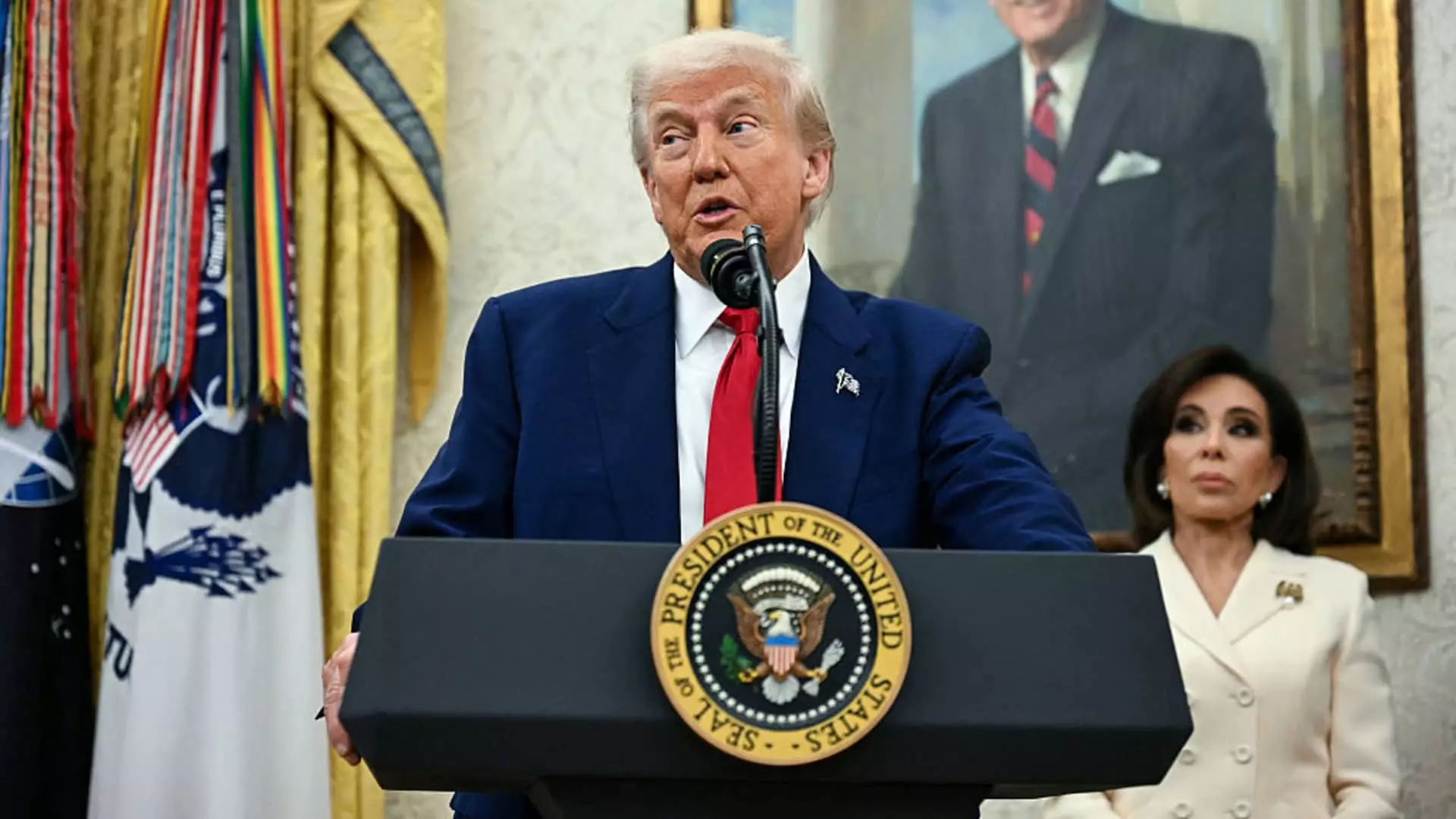In the world of economics and international trade, few phenomena are as perplexing as President Donald Trump’s unique brand of negotiation, often characterized by brinkmanship. His tariff threats elicit a range of reactions from investors and economists alike, but a term coined as “TACO trade”—short for “Trump Always Chickens Out”—aptly encapsulates this chaotic approach. The irony lies in the president’s refusal to recognize the implications of his own maneuvers: he claims that his fierce posturing is an effective strategy for gaining leverage in negotiations. In reality, it often leads to a rollercoaster of market instability.
Negotiation or Maneuvering?
During a recent interaction with CNBC, Trump dismissed the notion that he backs down—a claim made even more absurd given the evidence of his patterns. In his own narrative, he paints a picture of a cunning negotiator willing to take bold risks that ultimately yield favorable outcomes. When asked about his decision to postpone a heavy tariff on the European Union, he asserted that this move illustrated his negotiation prowess rather than an admission of defeat. This perspective is troubling, as it minimizes the volatility that such tactics inflict upon both domestic and global markets.
Investor confidence hinges on predictability and stability, and Trump’s erratic tariffs often contradict the kind of steady policy typically associated with economic growth. When stocks plummet following an aggressive tariff announcement—only to rebound after the president softens his stance—the scenario transforms into one of confusion and uncertainty. Investors are left scrambling, and the economy bears the brunt as they try to decipher the latest whims of the negotiator-in-chief.
The Illusion of Strength
What’s particularly fascinating about Trump’s negotiation style is its dependence on public perception. By framing his decisions as tactical retreats rather than failures, he attempts to maintain an image of strength. He posits that when agreements are eventually reached, critics will simply label him as “chicken,” thus undermining the substance of the deal. Yet, this manner of framing glosses over the collateral damage inflicted during the swings of his policy decisions. The psychological impact on markets and trade relations cannot be understated.
The reality is that a significant number of businesses hinge their strategies on the stability of trade rules. When those rules fluctuate erratically, the results include investment withdrawals and missed opportunities for innovation. With each new wave of tariffs and delays, Trump’s credibility as a negotiator erodes, and the American economy risks suffering from fatigue—leading to stagnation rather than growth.
Lessons from the TACO Trade
In a modern economy where interconnectivity is paramount, Trump’s short-term tactics detract from the development of sustainable trade relationships. The so-called “TACO trade” is a warning—a canary in the coal mine—that underscores the potential ramifications of viewing international relations as a game of bluff. The focus should shift from immediate gains to fostering long-lasting partnerships built on trust and open communication, rather than a cycle of threats and concessions.
The consequences of President Trump’s trade strategies are complex and multifaceted. His approach, framed as negotiation, often resembles a dysfunctional game of chicken—one that carries significant risks not only for the U.S. economy but for the broader international trade landscape.


Leave a Reply